Health
Ugandan Legislators applaud MakSPH for Road Safety & Injuries Research
Published
4 years agoon
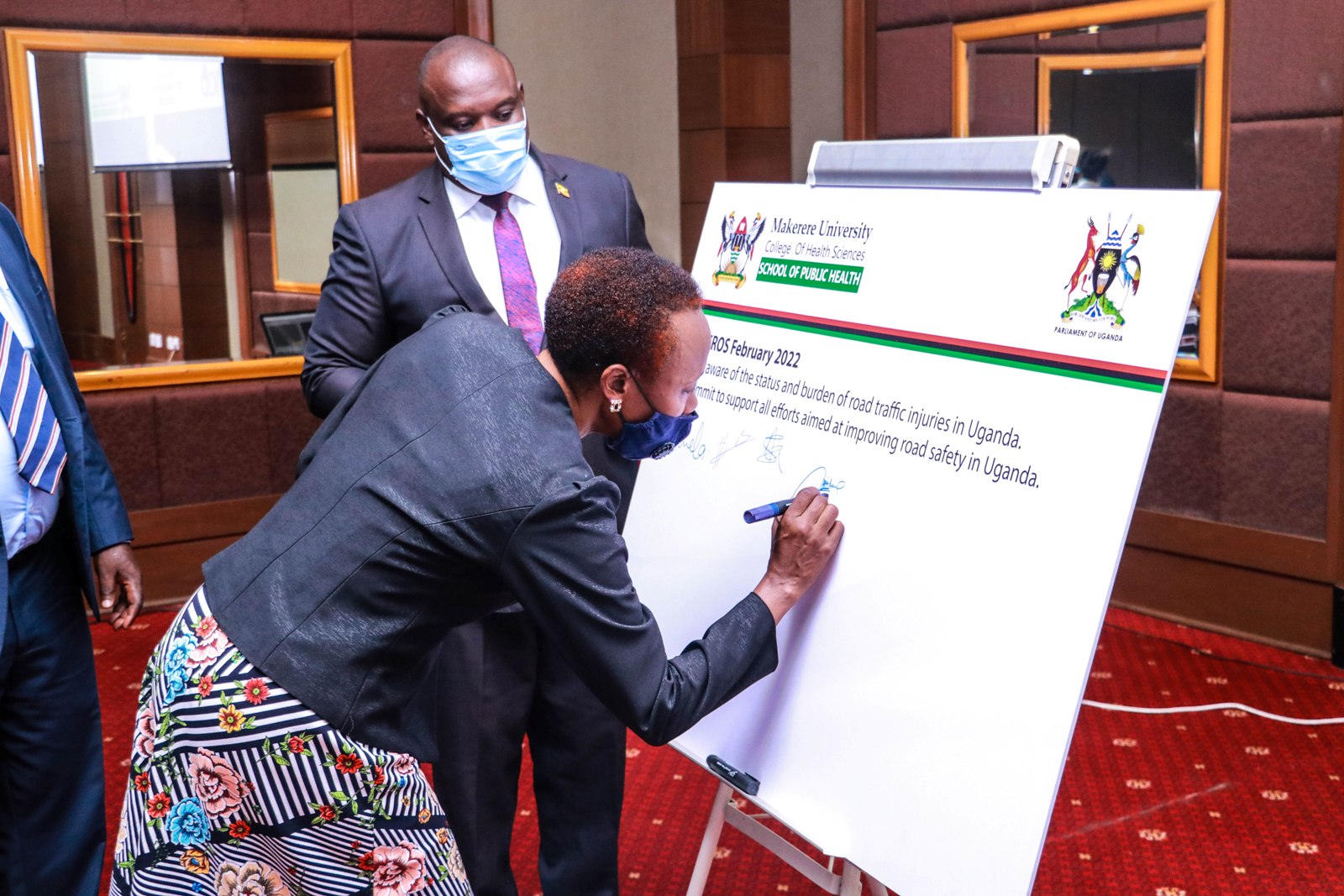
Members of Parliament under the Parliamentary Forum on Road Safety (PAFROS) have commended research efforts by the Makerere University School of Public Health’s Trauma and Disability Unit (TRIAD) for its leadership in injury and prevention research. The legislators signed a commitment to support all efforts aimed at improving road safety in Uganda.
The legislators said this while at an engagement meeting with researchers at MakSPH that took place on Thursday 17th February 2022 at Sheraton Hotel. In a well-attended session, the research team shared evidence from a number of publications that have influenced policy, and over 10-11 years, and the several achievements the School has achieved in collaboration with partners both national and international.
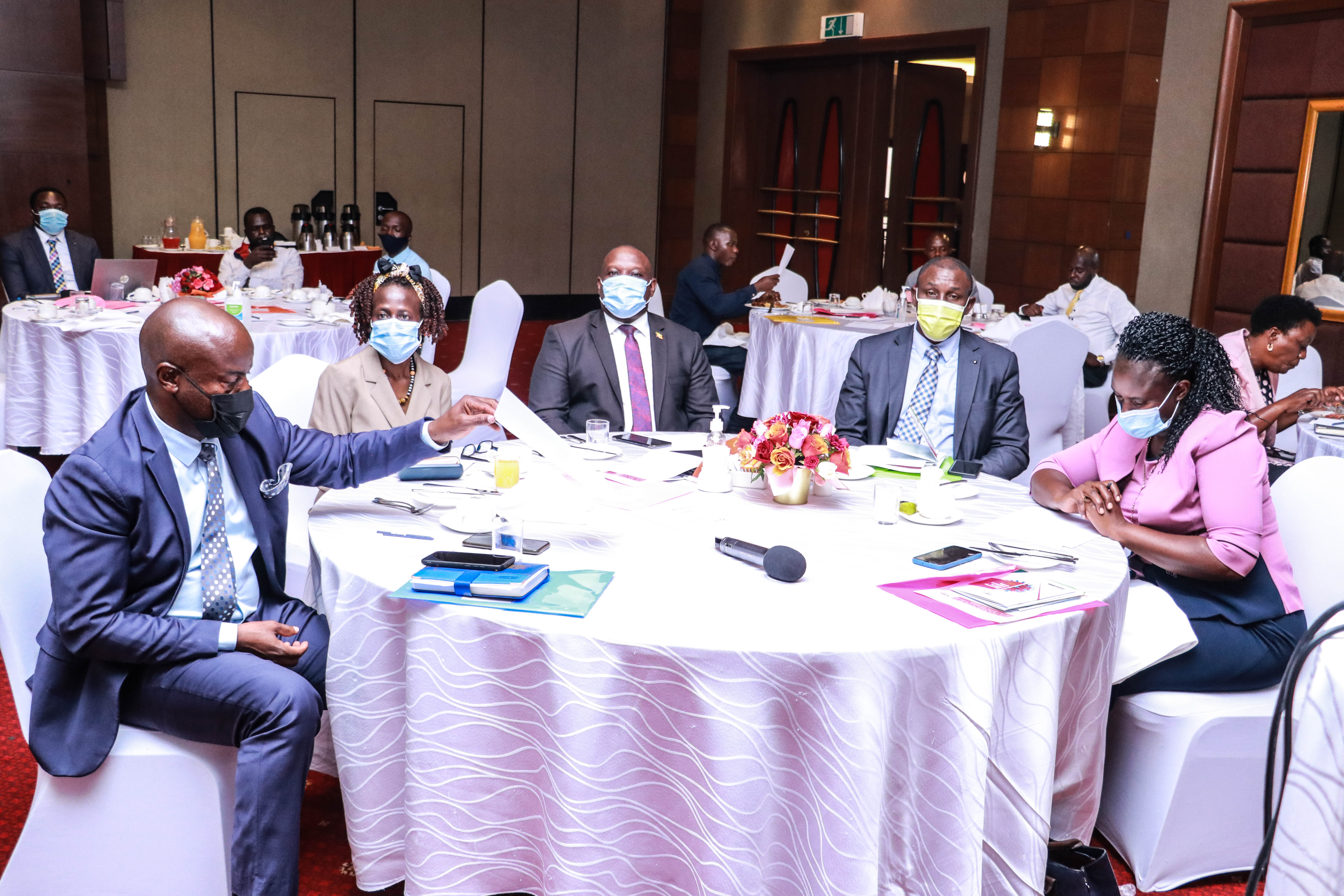
The 2014 WHO Global Health Estimates show high burden of injuries with over five million people dying of injuries every year. Mr. Frederick Oporia, a PhD fellow says nearly every six seconds, someone dies from an injury leaving over 50 million people with disabilities.
Despite this, there is insufficient research capacity to drive prevention and management of these injuries which makes multidisciplinary approach in handling multidisciplinary nature of injuries.

TRIAD’s main objective is to contribute to the reduction of injury burden in Uganda by strengthening research capacity on injuries and their medical, social and economic consequences both at Individual, community and National level.
There are various kinds of injuries that range from being intentional and non-intentional. Some of these include violence, burns, poisoning, drowning, falls and road traffic crashes. In all these injuries, road traffic contributes the highest burden 24% hence a big problem.
Currently, TRIAD focuses on mobility, Road Traffic Injury prevention, drowning prevention, childhood injury prevention and emergency Trauma Care and emergency medical services.
“When we compare HIV, tuberculosis and Malaria rates, we see that injuries alone almost double what these other Disease claim and it’s a problem we need to tackle,” says Oporia.
Goal 3 of the Sustainable Development Goals (SDGs) seeks to ensure health and well-being for all, at every stage of life. Equally so, the UN Decade of Action included road safety in the framework of Sustainable Development Goals with an ambition to halve road traffic deaths and injuries by 2020.
The 2011-2020 decade of action for road safety was premised on five pillars that included road safety management, safer roads and mobility, safer vehicles, safer road users, and post-crash response.
However, trends analysis in the Uganda Police Reports show that Uganda instead increased road traffic crashes. The SDG Goal 11 that commits UN member States to make cities and human settlements inclusive, safe, resilient and sustainable ambitiously states that by 2030, the member states should be able to provide access to safe, affordable, accessible and sustainable transport systems for all, improving road safety, notably by expanding public transport, with special attention to the needs of those in vulnerable situations, women, children, persons with disabilities and older persons.

The Road safety performance review report of 2018 show that Uganda’s road safety management is managed in the Ministry of Works and Transport under the Directorate of Road Transport. Some of the road transport legislations include, the Traffic and Road Safety Act (Amended) 2020, the Uganda National Roads Authority Act, 2006, the Uganda Road Fund Act, 2008, the National Road Safety Policy, 2014 and the Non-Motorized Transport policy, 2012.

Speaking to the legislators, Esther Bayiga Zziwa, a PhD fellow at MakSPH’s TRIAD unit says however that Uganda has legislative gaps in majority of the risk factors for instance, while Uganda has national drink-driving law in place, and drink – driving based on Blood Alcohol Content (BAC) or equivalent breath alcohol concentration (BrAC), the BAC limit for the general population is way higher than the global standard. The global standard is at below 5 gram per blood liter. However, in Uganda, the law puts it at 7 gram per blood liter which is high. Ms. Bayiga says there is a need to handle this back to the global level.
Uganda has a national motorcycle helmet law in place which applies to motorcycle drivers and adult passengers and to all road types an engine type. However, the law does not require helmets to be properly fastened as well as meet the national and or international standards.
“Helmets standards for motorcyclists put up by Uganda National Bureau of Standards (UNBS) need to make sure that those ones on market meet the standards and if you are found wearing a fake helmet, you are not better off than one not wearing any because in case of a crash, it will damage your head instead of protecting it, and people need to fasten their Helmets for better effectiveness,” says Bayiga.
Research on road safety has found that behaviour interventions area not as effective as environmental, legislative and enforcement actions. Bayiga says the Behavioural component alone cannot be effective. She recommends a multipronged approach that includes bbehavioural, environmental modification, enforcement and legislation in road safety regulation.
Uganda lacks a national child restraint law based on age, weight, height or a combination of these factors that would restrict children under a certain age-height from sitting in the front seat.
“In Uganda, even here in Kampala, those who can afford cars do not buy child safety seats for their babies and the children are carried by other adults and do not have a seat on their own. However, in case of a clash, those are the first ones that fall off the car because of their body mass and can’t survive with the normal seat,” Bayiga says.

According to Bayiga, other countries have the regulations but; “Our law does not take account any with regarding children, and probably some people think cannot afford, but this can not be compared to the lives and value of children, they too need safe seat because every life matters and a law should be put in place to address this.”
Hon. Linda Irene Mugisa, the Fort portal City Woman MP and member of the Road Safety Forum acknowledges the role of legislators to make laws and policies that would protect Ugandans.

“We have a big role of sensitizing the masses. Right now, we have very many youths who are earning income through riding boda-bodas. And the unfortunate part of this is that most of these youths have not gone through training and most of them are riding illegally because some cannot afford the driving permits. As members of parliament we feel we should advocate for the reduction in the amount of money a rider requires in order to acquire a driving permit,” says Hon. Linda.
Juliet Bashiisha Agasha, the Woman MP for Mitooma District said she was impressed by the dialogue and was excited to learn that indeed, the Trauma, Injury and Disability Unit at Makerere University School of Public Health was the only unit in Uganda that focuses on research of injury and prevention.

According to Hon. Agasha, there are many unqualified drivers on Uganda’s road who commit a lot of traffic offenses and sometimes walk away without punishment due to lack of monitoring systems. She also says most drivers lack good training and that some simply acquire driving permits without ever going to the driving schools.
“If we can have the measures that can monitor whoever makes a mistake, and then they charge accordingly, I know as Ugandans, we fear fines very much. The moment they fine you today, I don’t think tomorrow you can repeat the same mistake,” says Hon. Agasha.
She advocates for more cameras to track traffic crimes in order to improve road safety. “In fact, you find someone who is driving without a seatbelt and when he senses a traffic person, that is when he remembers that seatbelts are supposed to be used. So there is a lot of effort that we have to put in in order to reduce on road accidents especially on these motorcycles. You find a big group of motorcycles driving when there are red lights and they don’t mind whether there is red or green for them they keep moving. But if they can be controlled or sensitized about dangers of a vehicle that coming from a different direction, I believe we can reduce on the road accidents,” says Hon. Agasha.
The MP for Iki-Iki County in Budaka district, Robert Kasolo agrees that using technology in enforcement of traffic order is the way to go. He expresses concern that cameras in Uganda are largely not for road traffic law enforcement but for security reasons. “But I think that would be the ideal situation. In developed countries, cameras are part of the gadgets for enforcing traffic laws. We need to move in that direction. Policemen cannot be everywhere. But a camera can record a wider area and can be a source of evidence,” says Hon. Kasolo, who also doubles as Vice Chairperson of the Physical Infrastructure Committee of Parliament.
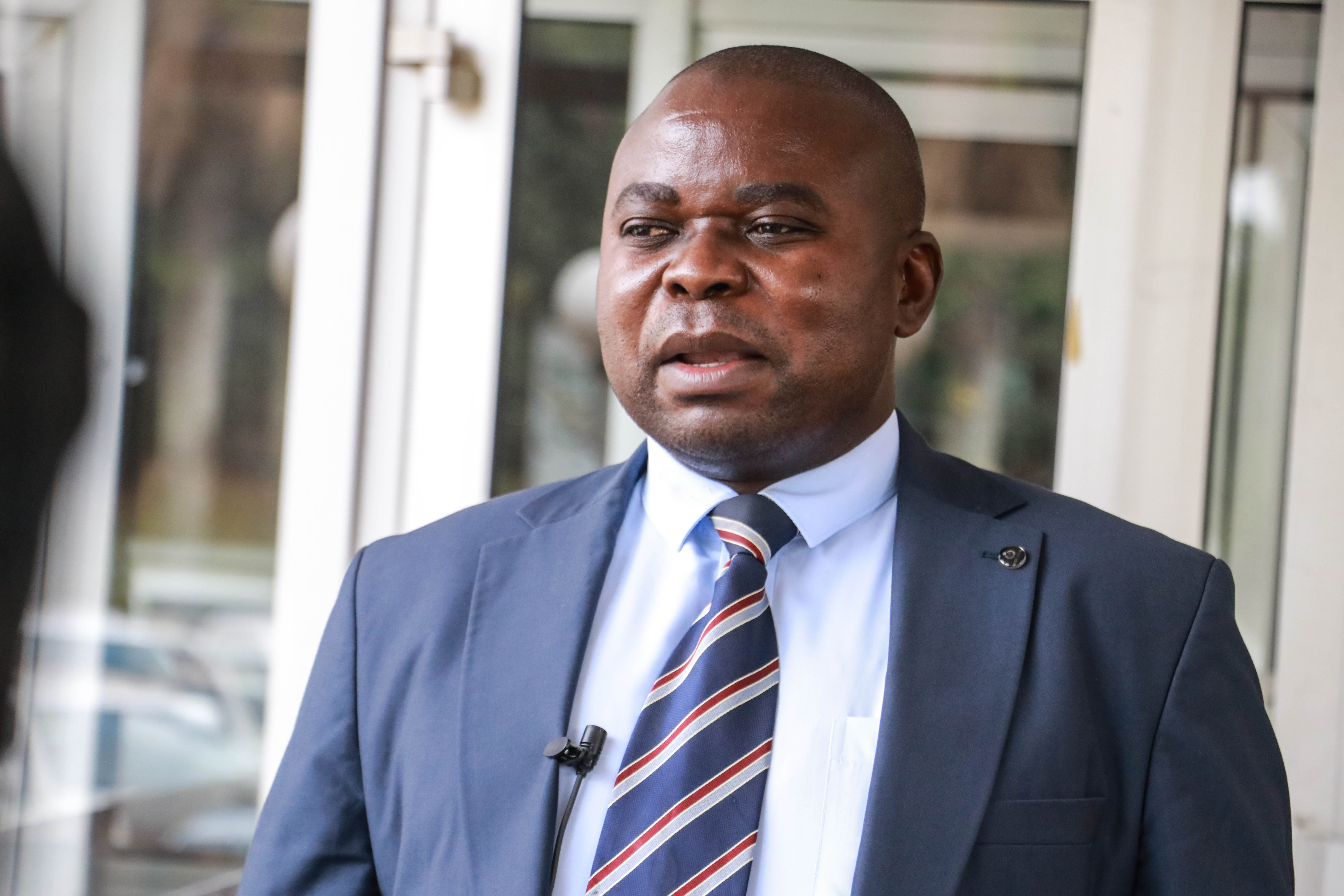
Tonny Ayo, the Member of Parliament for Kwania County, and Vice chairperson Parliamentary committee on Road Safety wants the Uganda Police Traffic department to begin to use the cameras both within the cities and high ways to bring drivers to book.
“One of our concerns of ensuring that people follow the traffic regulations and laws is that government put in place the cameras on streets and highways and we have spent money on this and the purpose was not only to deal with crime and terrorism but one of them was enforcement of traffic rules and regulations which unfortunately as a Forum as parliament and a public are wondering why government cannot come up to enforce this,” says Hon. Ayo.

He opines that; “When you drive along highways and roads within Kampala, the reckless driving of high speed, the bad overtaking, we expected that cameras could take stock of what is happening. We are calling on government to move in to ask police to begin to use these cameras to enforce the laws.”
According to Hon. Ayo, using video and pictorial evidence from the cameras, government will go a long way in collecting huge non-tax revenue through fines of traffic offenders.
“If we do this consistently for 6 months, then we are going to see discipline by the motorist in in this country and I think by the decade plan of action we were supposed to have reduced road crashes and injuries in the country by half by 2020. Now we are in 2022, and instead of reducing, the crashes and injuries have increased. That means now we need to act because we have noticed that sensitization and talking to people,” says Hon. Ayo.
Dr. Olive Chifefe Kobusingye, an accident & emergency surgeon, injury epidemiologist at MakSPH says TRIAD’s biggest concern is road safety and accessible for all road users. She ads that this can be achieved through good road designs.
“Designing for all road users not just for motorists. Making sure that there is space to accommodate pedestrians, cyclists, motorcyclists and accommodate those that are using wheel chairs for instance and to pay attention to the size of the population so that we in the design cater for heavy pedestrian presence, those spaces are adequate for them,” says Dr. Kobusingye.

In addition to the design, Dr. Kobusingye also agrees with the legislators on the need to increase enforcement of traffic regulations in Uganda to ensure road safety.
“There are areas where we need to enforce for instance where there is limited access to motorized traffic. These are all provided for in the non-motorized transport policy. So, the implementation of that policy is key to ensuring that transportation is safe, its accessible, its affordable and that its equitable that we do not prioritize certain types of road users over others,” Dr. Kobusingye observes.

You may like
-


Makerere Launches Scholarly Guide, Calls for Increased Research, Publication and Innovation in Africa
-
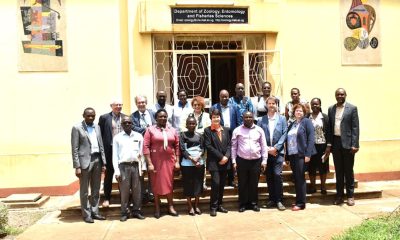

BOKU University Charts New Collaboration Strategies with Mak’s Department of Zoology, Entomology & Fisheries Sciences
-


When Birth Becomes the Most Dangerous Moment, Wanduru & the Work of Making Labour Safer
-
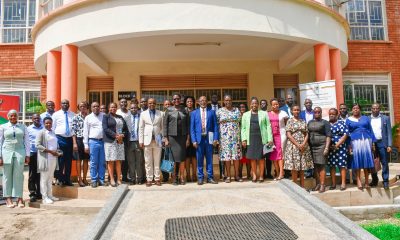

VC Opens Training for MoKCC Officials on Safeguards in Procurement
-


Study Alert: Power in Her Hands; Why Self-Injectable Contraception May Be a Game Changer for Women’s Agency in Uganda
-
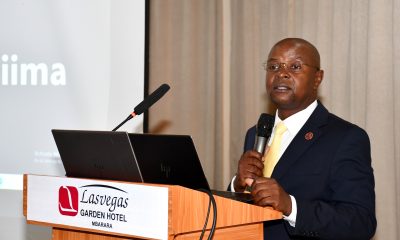

Building Skills for Better Public Investments: PIM Centre Trains Public Sector Economists
Health
Call for Applications: Short Course in Molecular Diagnostics March 2026
Published
3 days agoon
February 12, 2026By
Mak Editor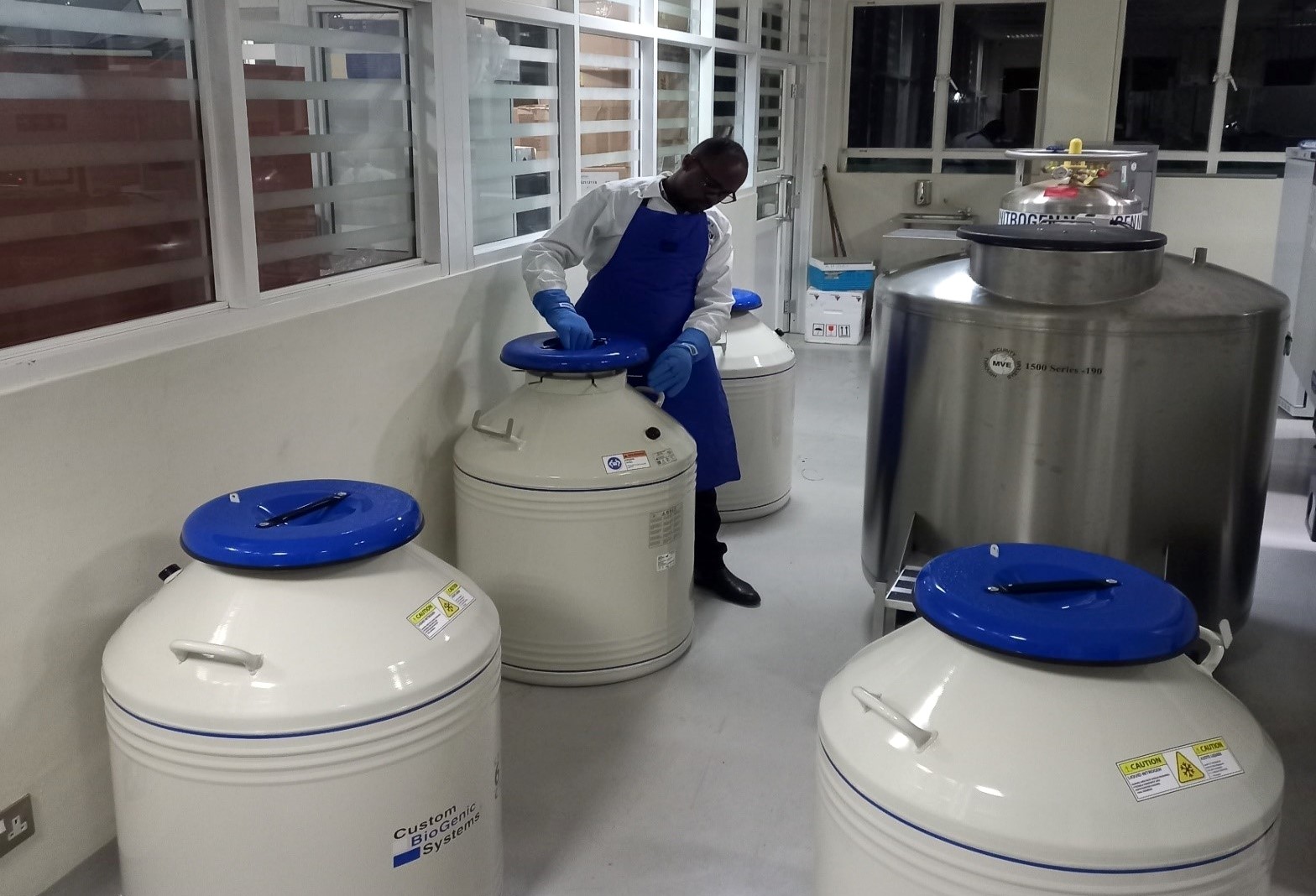
Makerere University College of Health Sciences, Department of Immunology and Molecular Biology, in collaboration with the Makerere University Biomedical Research Centre (MakBRC), is pleased to invite applications for a Short Course in Molecular Diagnostics scheduled for 23rd–27th March 2026.
This hands-on course will introduce participants to core principles and practical skills in molecular diagnostics, including nucleic acid structure and function, laboratory design and workflow, PCR setup, gel electrophoresis and DNA band interpretation, contamination control and quality assurance, and clinical applications of PCR in disease diagnosis.
The training will take place at the Genomics, Molecular, and Immunology Laboratories and will accommodate 30 trainees. The course fee is UGX 500,000.
Target participants include:
- Graduate students with basic exposure to molecular biology (e.g., MICM, MSBT)
- Final year undergraduate students (e.g., BBLT, BMLS)
- Medical and veterinary clinicians
- Agricultural professionals interested in practical molecular biology
To apply, please send your signed application via email to nalwaddageraldine@gmail.com (copy Dr. Eric Kataginy at kataginyeric@gmail.com). Indicate your current qualification, physical address, and phone contact (WhatsApp preferred), and attach a copy of your National ID or passport data page, your current transcript or testimonial, and your degree certificate (if applicable).
The application deadline is 13th March 2026. Successful applicants will be notified by email. Admitted participants are required to pay the course fee within five days to confirm their slot.
For further inquiries, don’t hesitate to get in touch with Ms. Geraldine Nalwadda on +256 701 361449.
See download below for detailed call.
Health
When Birth Becomes the Most Dangerous Moment, Wanduru & the Work of Making Labour Safer
Published
4 days agoon
February 11, 2026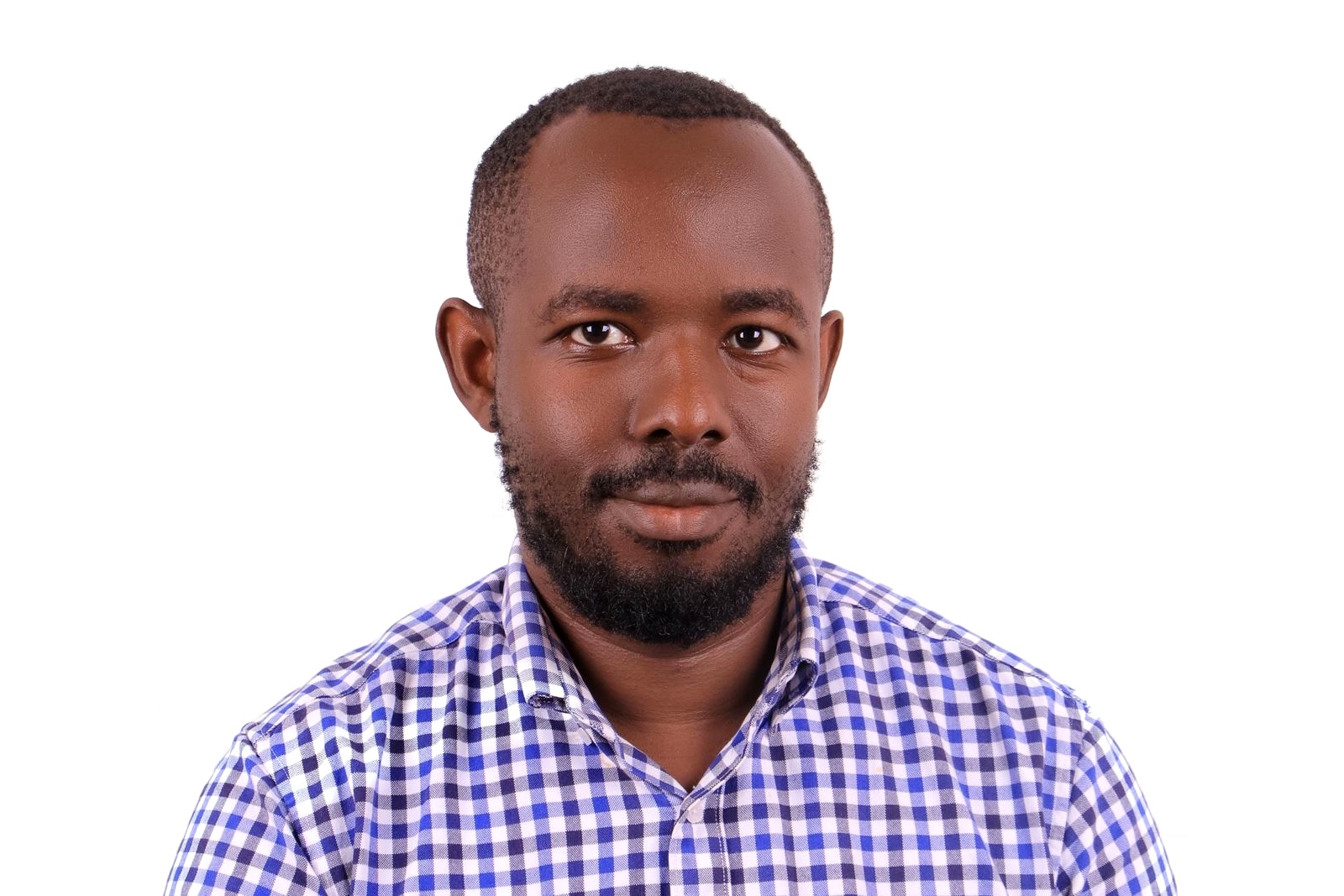
The ward is never quiet during labour. Even at night, there are cries, some sharp with pain, others muted by exhaustion. Monitors beep. Midwives move quickly between beds. In the moments just before birth, everything narrows to breath, pressure, and time.
It was in places like this, years ago, that Phillip Wanduru first learned how fragile that moment can be.
Working as a clinical nurse at Nakaseke Hospital in central Uganda, he watched babies who should have survived struggle for breath. Some were born still. Others cried briefly, then went silent. Many were not premature or unusually small; they were full-term babies whose lives unraveled during labour.
“What troubled me most,” Wanduru recalls, “was that these were complications we have known how to manage for more than a hundred years, prolonged labour, obstructed labour, and hypertension. And yet babies were still dying or surviving with brain injuries.”
Those early encounters never left him. They became the questions that followed him into public health, into research, and eventually into a doctoral thesis that would confront one of Uganda’s most persistent and preventable tragedies.

A Public Defense, Years in the Making
On Friday, June 13, 2025, Wanduru stood before colleagues, mentors, and examiners in a hybrid doctoral defense held at the David Widerström Building in Solna, Sweden, and online from Kampala. The room was formal, but the subject matter was anything but abstract.
His PhD thesis, “Intrapartum-Related Adverse Perinatal Outcomes: Burden, Consequences, and Models of Care from Studies in Eastern Uganda,” was the culmination of years spent listening to mothers, following newborns long after delivery, and documenting what happens when birth goes wrong.
He completed the PhD through a collaborative programme between Makerere University and Karolinska Institutet, under the supervision of Prof. Claudia Hanson, Assoc. Prof. Peter Waiswa, Assoc. Prof. Helle Mölsted Alvesson, and Assoc. Prof. Angelina Kakooza-Mwesige, a team that bridged global expertise and local reality. His doctoral training unfolded as the two institutions marked 25 years of collaboration, a partnership that has shaped generations of public health researchers and strengthened research capacity across Uganda and beyond.
By the time he defended, the findings were already unsettlingly clear.

One in Ten Births
In hospitals in Eastern Uganda, Wanduru’s research found that more than one in ten babies experiences an intrapartum-related adverse outcome. This medical term refers to babies who are born still, die shortly after birth, or survive with brain injury caused by oxygen deprivation during labour.
Among those outcomes, stillbirths accounted for four in ten cases. Five in ten babies survived with brain injury.
“These are not rare events,” Wanduru explains. “They are happening every day, often in facilities where care should be available.”
But survival was only part of the story.
Following infants diagnosed with intrapartum-related neonatal encephalopathy for a year, his research revealed that about seven in ten babies with severe brain injury died before their first birthday. Among survivors, many faced lifelong challenges, difficulty walking, talking, and learning.
“What happens in labour,” he says, “does not end in the delivery room. It follows families for years.”
He describes the findings of his PhD research as appalling, evidence of an urgent failure in how labour and delivery are managed, and a call for immediate action to prevent avoidable complications. “Babies with severe brain injuries,” he notes, “faced the greatest odds. Even when they survived birth, nearly seven in ten died before their first birthday. Of those who lived beyond infancy, about half were left with long-term challenges, including difficulties with walking, talking, or learning.”
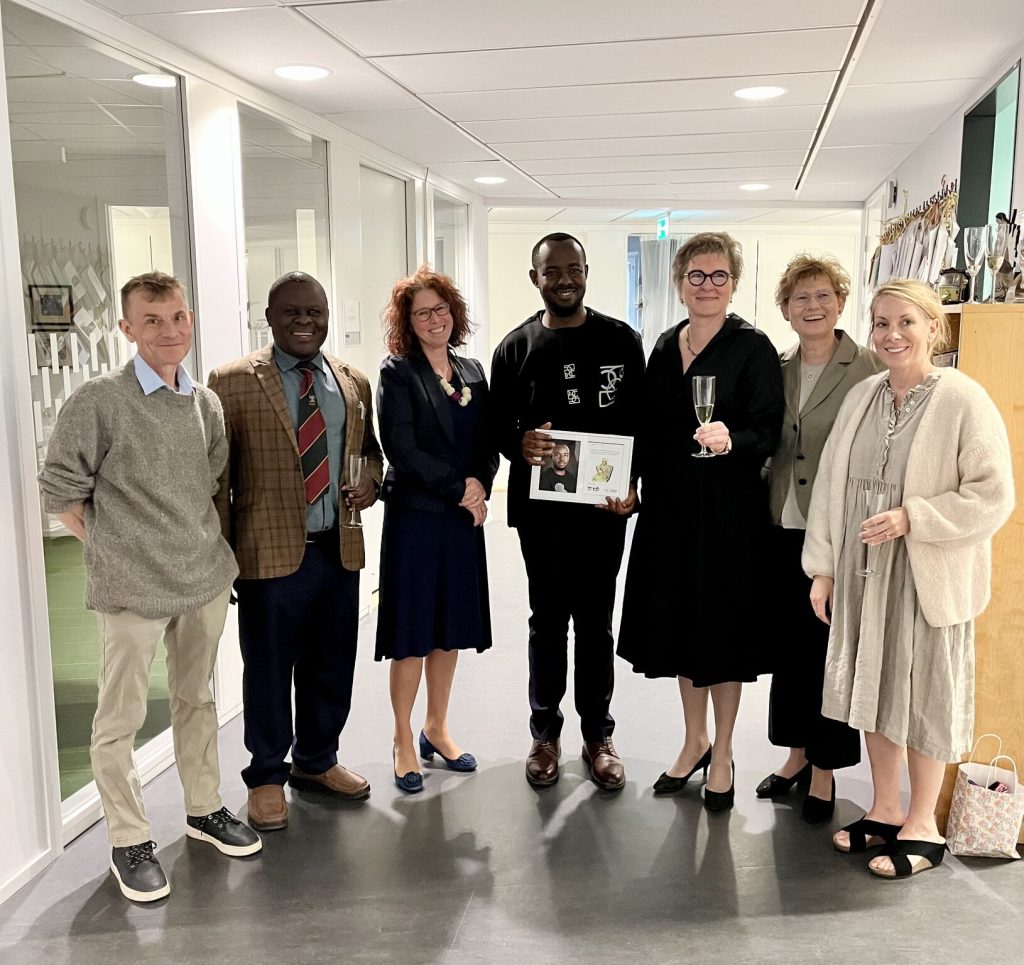
Mothers at the Centre—Yet Often Invisible
Wanduru’s work did not stop at numbers. Through in-depth interviews with mothers and health workers, he uncovered a quieter truth that parents, especially mothers, were desperate to help their babies survive, but often felt unsupported themselves.
Mothers followed instructions closely. They learned to feed fragile babies, keep them warm, and monitor breathing. They complied with every rule, driven by fear and hope in equal measure.
“The survival of the baby became the only focus,” Wanduru says. “But the mothers were exhausted, emotionally drained, and often ignored once the baby became the patient.”
Even as mothers remained central to care, their own physical and mental well-being received little attention. For the poorest families, the burden was heavier still: long hospital stays, transport costs, and uncertainty about the future.
These insights shaped one of the thesis’s most powerful conclusions: saving newborn lives requires caring for families, not just treating conditions.
Why Care Fails—Even When Knowledge Exists
One of the most uncomfortable findings in Wanduru’s research was that emergency referrals and caesarean sections did not consistently reduce the risk of brain injury, except in cases of prolonged or obstructed labour.
The problem, he found, was not the intervention, but the delay.
In many facilities, hours passed between identifying a complication and acting on it. Ambulances were unavailable. Referral systems were weak. Operating theatres lacked supplies or staff.
“These are not failures of science,” Wanduru says. “They are failures of systems.”
His work reinforces a sobering reality for policymakers that most intrapartum-related deaths and disabilities are preventable, but only if care is timely, coordinated, and adequately resourced.
From Bedside to Systems Thinking
Wanduru’s path into public health began at the bedside. After earning a Bachelor of Science in Nursing from Mbarara University of Science and Technology in 2011, he trained as a clinician, caring for patients during some of their most vulnerable moments. He later completed a Master of Public Health at Makerere University in 2015, a transition that gradually widened his focus from individual patients to the health systems responsible for their care.
His work gradually drew him deeper into the systems shaping maternal and newborn care. As a field coordinator for the MANeSCALE project, he worked within public and private not-for-profit hospitals, helping to improve clinical outcomes for mothers and babies. Under the Preterm Birth Initiative, he served as an analyst, contributing to efforts to reduce preterm births and improve survival among vulnerable infants through quality-improvement and discovery research across Uganda, Kenya, and Rwanda.
In the Busoga region, he coordinated prospective preterm birth phenotyping, following mothers and babies over time to better understand the causes and consequences of early birth. Since 2016, this work has been anchored at Makerere University School of Public Health, where he serves as a Research Associate in the Department of Health Policy, Planning, and Management.
Across these roles, he found himself returning to the same question: why babies continue to die during a moment medicine has long learned to handle.
Models of Care That Could Change Outcomes
Wanduru’s thesis does more than document failure; it points toward solutions.
He highlights family-centred care models, including Kangaroo Mother Care, which keep babies and parents together and improve recovery, bonding, and brain development. He emphasizes early detection of labour complications, functional referral systems, and rapid access to emergency obstetric care.
“These are not new ideas,” he says. “The challenge is doing them consistently.”
He also calls for recognizing stillbirths, not as inevitable losses, but as preventable events deserving data, policy attention, and bereavement support.
“Stillbirths are often invisible,” he notes. “But they matter to mothers, to families, and to the health system.”
Research That Changes Practice
For Wanduru, the most meaningful part of the PhD journey is that the evidence is already being used. Findings from his work have informed hospital practices, advocacy reports, and quality-improvement discussions.
“Yes, the PhD was demanding,” he admits. “But knowing that the work is already contributing to change makes it worthwhile.”
His mentors see him as part of a broader lineage, researchers committed not only to generating evidence but to ensuring it improves care.
With a PhD in his bag, Wanduru sees his work as a continuation rather than a conclusion.
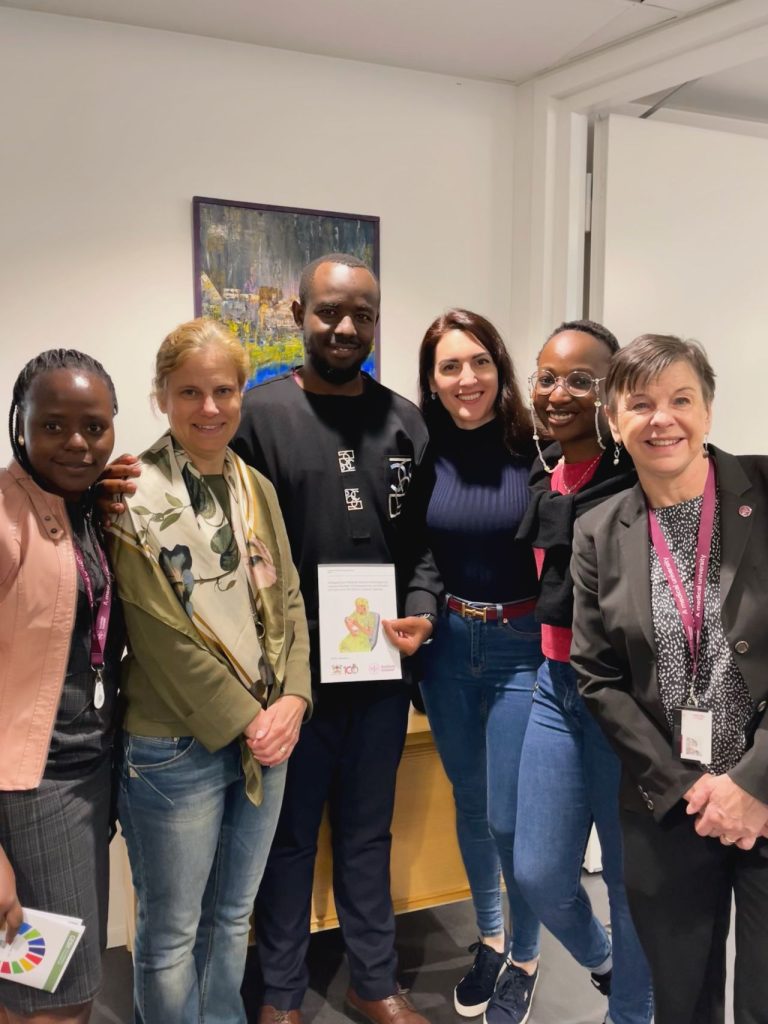
“The fight to make birth safe for every mother and baby continues,” he says. “I want to contribute to improving care and to building the capacity of others to do the same.”
That means mentoring young researchers, strengthening hospital systems, and keeping the focus on families whose lives are shaped in the delivery room.
Dr. Wanduru joins fellows in the MakSPH PhD forum who concluded their doctoral journeys in 2025, and his work speaks for babies who never cried, for mothers who waited too long for help, and for health workers doing their best within strained systems. It insists that birth, while always risky, does not have to be deadly.
— Makerere University School of Public Health Communications Office, Graduation Profiles Series, 76th Graduation Ceremony
Health
Study Alert: Power in Her Hands; Why Self-Injectable Contraception May Be a Game Changer for Women’s Agency in Uganda
Published
5 days agoon
February 10, 2026By
Mak Editor
By Joseph Odoi
In the remote villages of Eastern and Northern Uganda, a small medical device is doing far more than preventing unintended pregnancies, it appears to be quietly shifting the balance of power in women’s lives.
A new study titled “Is choosing self-injectable contraception associated with enhanced contraceptive agency? Findings from a 12-month cohort study in Uganda” has revealed that self-injection gives women more than just a health service, it can boost their confidence, control, and agency over their reproductive health.
The research was conducted by Makerere University namely; Professor Peter Waiswa, Catherine Birabwa, Ronald Wasswa, Dinah Amongin and Sharon Alum in collaboration with colleagues from the University of California, San Francisco
Why this Study matters for Uganda
For decades, family planning in Uganda has followed a provider-client model. Women travel long distances to clinics, wait in queues, and rely on health workers to administer contraception. This system creates barriers transport costs, clinic stock-outs, long waiting times, and limited privacy.
Self-injectable contraception, known as DMPA-SC, disrupts this model by shifting care from the clinic to the individual woman.
DMPA-SC is a discreet, easy-to-use injectable that women can administer themselves after receiving basic training and counselling.
What the Data Tells Us
To see if self-care technology actually shifts the needle on women’s power, researchers tracked 1,828 women across Eastern (Iganga and Mayuge Districts) and Northern Uganda (Kole, Lira, and Oyam Districts) for a full year. They compared women who chose to self-inject their birth control (216 women) against a control group, most of whom chose methods requiring dependency on clinics (1,612 women).
The Six-Month “Agency Spike”
The study used a Contraceptive Agency scale (scored from 0 to 3) to measure a woman’s internal confidence and her ability to act on her health choices.
The Self-Injectors
For the Self Injectors, their agency scores rose significantly, from 2.65 to 2.74 by the six-month mark.
The Clinic-Dependent Group
Scores for the group using mostly provider-led methods (like clinic shots or implants) remained nearly flat, moving from 2.61 to only 2.63.
Within just six months, women who took control of their own injections noted that they felt a measurable boost in their Consciousness of reproductive Rights (0.08 points) since they transitioned from being passive recipients of care to active decision-makers.
Using the Agency in Contraceptive Decisions Scale (scored 0–3), the study found a clear empowerment advantage for women who chose self-injection.
The findings come at a time when Uganda has reaffirmed its commitments under FP2030, aiming to expand access to voluntary, rights-based family planning. The study also aligns with the National Family Planning Costed Implementation Plan, which prioritises method choice, equity, and continuation, as well as national gender and youth empowerment strategies.
Can Uganda Sustain and Scale DMPA-SC?
Self-injectable contraception does not require continuous high-cost investment. Training and rollout costs are largely one-time, and the main recurring expense is the contraceptive commodity itself. Compared with the cumulative costs of repeated clinic visits for both the health system and women self-injection is more cost-effective over time.
Advancing primary health care with DMPA-SC
Beyond cost savings, self-injection eases pressure on health facilities and allows health workers to focus on more complex care. It also extends health services into communities, supporting continuity of care in areas where facilities are few and far between. In this way, family planning is no longer confined to the clinic.
While donor support has helped introduce the method, it can be sustained locally without relying on external funding. “With predictable national financing and reliable commodity supply chains, DMPA-SC can reach more women and be fully integrated into Uganda’s health system, strengthening both access and community-level service delivery’’ according to the researchers.
Implications for Policy and Practice
As Uganda continues to reform its primary health care system, the findings add evidence to ongoing discussions about how family planning services are delivered, financed, and prioritised.
The research also positions self-injectable contraception not as a temporary innovation, but as a scalable method with the potential to be embedded within national systems provided that commodity availability and financing are safeguarded.
To ensure these gains are lasting, researchers recommend moving beyond the technology and addressing the structural and social barriers that can limit women’s agency.
Key recommendations from the researchers include the following
1. Reliable Supply Chains
Empowerment collapses when products are unavailable. DMPA-SC must be consistently stocked at the community level.
2. Creating a Supportive Social Environment
Privacy concerns, stigma, and partner resistance must be tackled through community engagement and sensitisation.
3. Prioritizing Informed Choice
Self-injection should be offered as a top-tier option in every facility, framed as a fundamental right to autonomy rather than just a medical convenience.
4. Integrated Counseling
Providers must be trained to support women not only in the “how to inject” but also in navigating the social challenges of self-care.
On the next step, the researchers call for a clear integration of DMPA-SC into national health financing, protection of family planning commodity budgets, and deliberate scaling of self-injectable contraception within Primary Health Care reforms. These actions will ensure sustainability, reliable access, and greater control for women over their reproductive choices according to the researchers.
Read the full study here: https://www.contraceptionjournal.org/article/S0010-7824(26)00003-X/fulltext
Trending
-

 General2 weeks ago
General2 weeks agoCall for Applications: Admission to Postgraduate Programmes 2026/2027
-

 Natural Sciences2 weeks ago
Natural Sciences2 weeks agoSimon Mungudit: Mak’s Best Performing Male Science Student & Rising Star in Petroleum Geoscience
-

 Agriculture & Environment1 week ago
Agriculture & Environment1 week agoFrom Adversity to Excellence: The Inspiring Journey of Makerere’s Best Science Student, Esther Ziribaggwa
-

 Health2 weeks ago
Health2 weeks agoCall For Applications: MakNCD Masters and PhD Training Opportunities
-

 General5 days ago
General5 days agoAptitude Exam (Paper 1) Results for the Mature Age Entry Scheme 2026/2027
